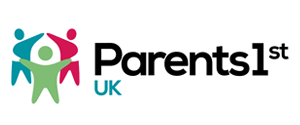Having defined your overall aim, you now need to decide if and how peer support could make a significant contribution and why.
This is what parents say about how peer support helps:
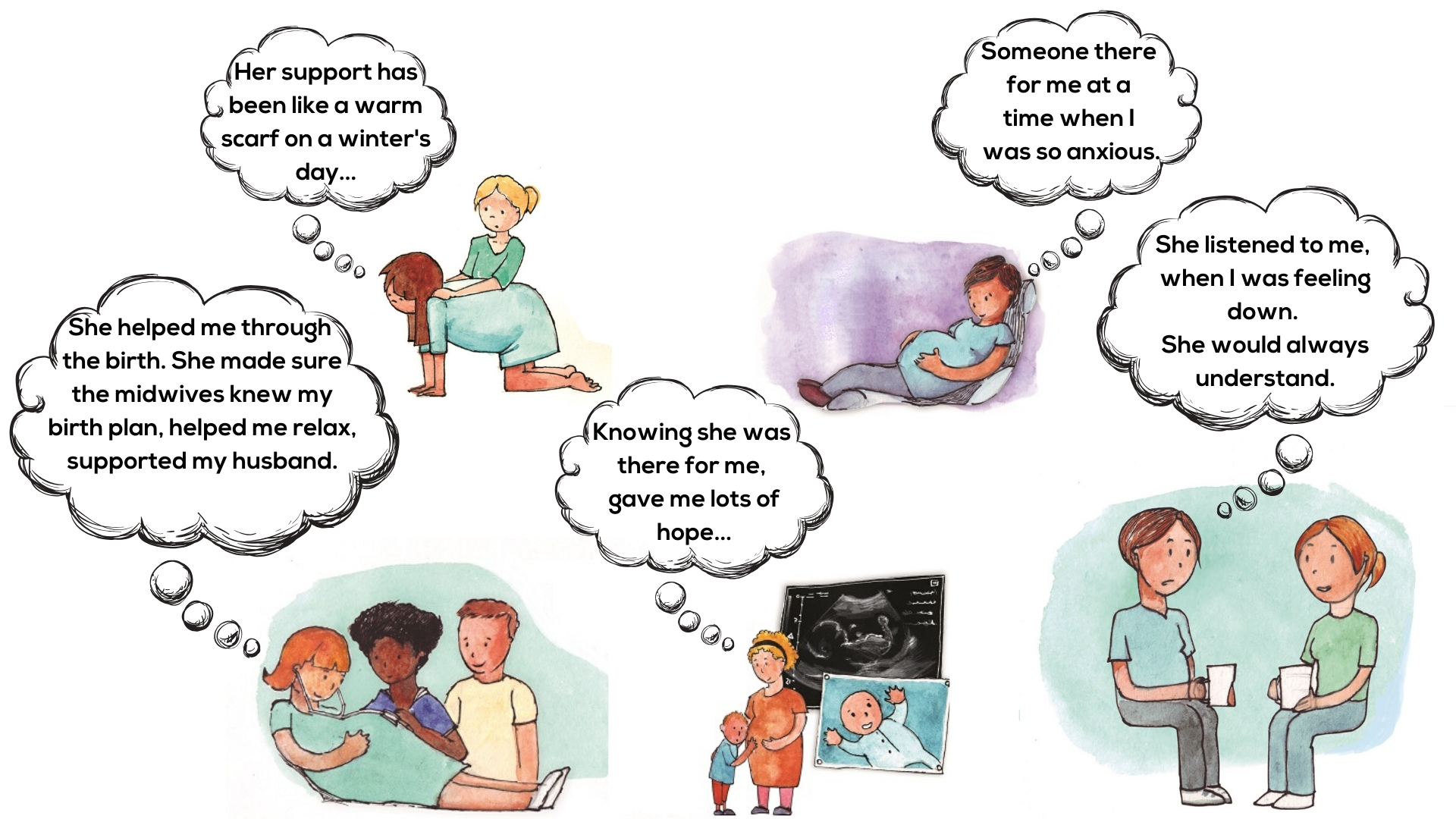
The unique benefits of peer support explained:
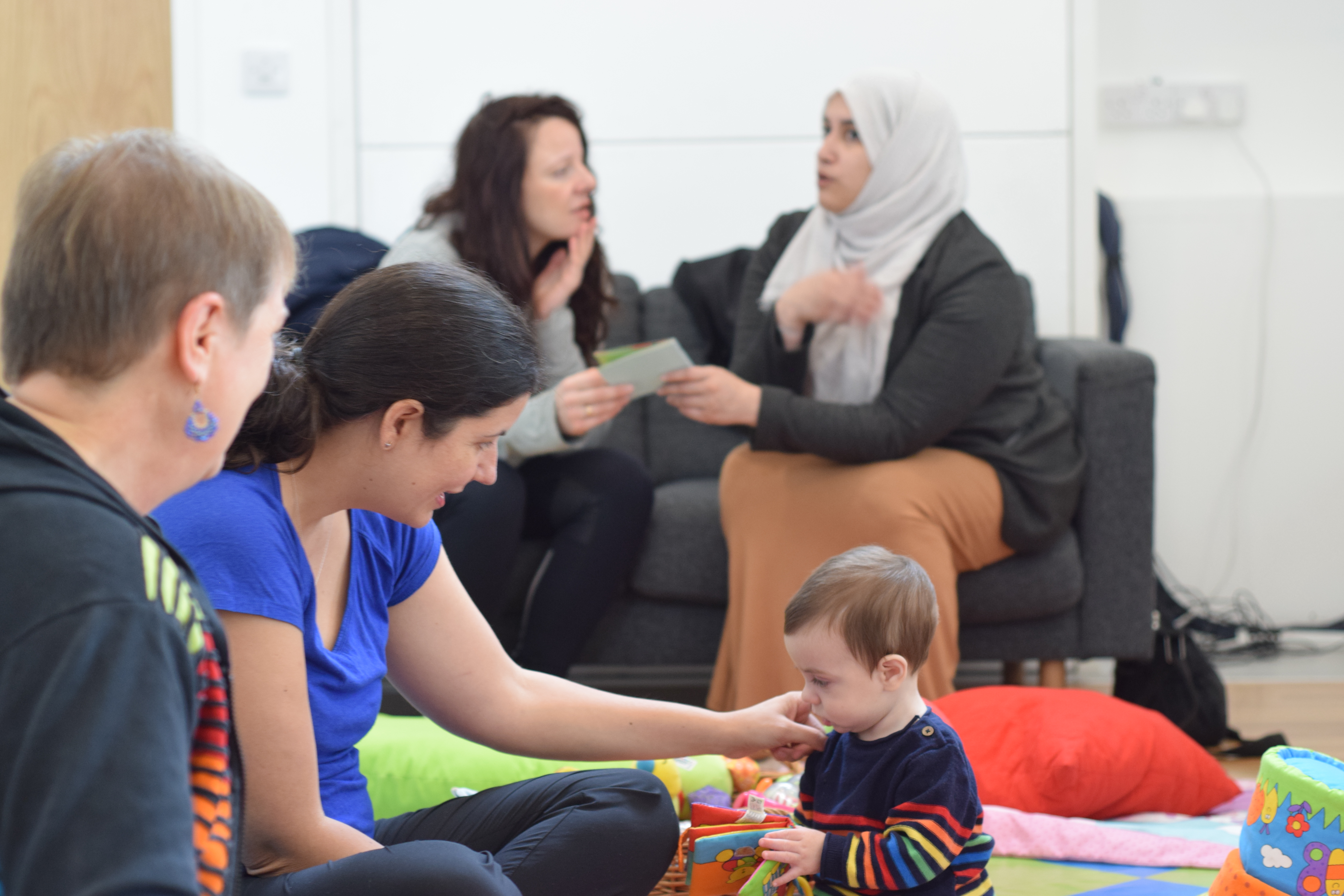
A key consideration is that peer supporters can often reach the parts that professionals do not reach. They do this through:
- Empathy and engagement
- Building relationships of trust without agendas.
Parents facing challenges can be more wary of engaging, even with volunteers – it takes time.
Evidence shows that volunteering has a direct impact on outcomes for parents and babies. For example, this multisite research study of volunteer doulas identified significant improvements in maintaining breastfeeding.
Parents 1st Community Parent programmes use before and after self-rating scores for one to one home visits.
These have shown statistically significant change, particularly in relation to:
• Feeling better prepared for labour and birth
• More confident to breastfeed
• Feeling better prepared for early parenthood
• Reduced social isolation
• Improved emotional wellbeing
• Improved bonding with their baby.
Volunteers experienced statistically significant improvements to their self-confidence.
Qualitative evidence from parents supported also contributes to understanding about direct impact:
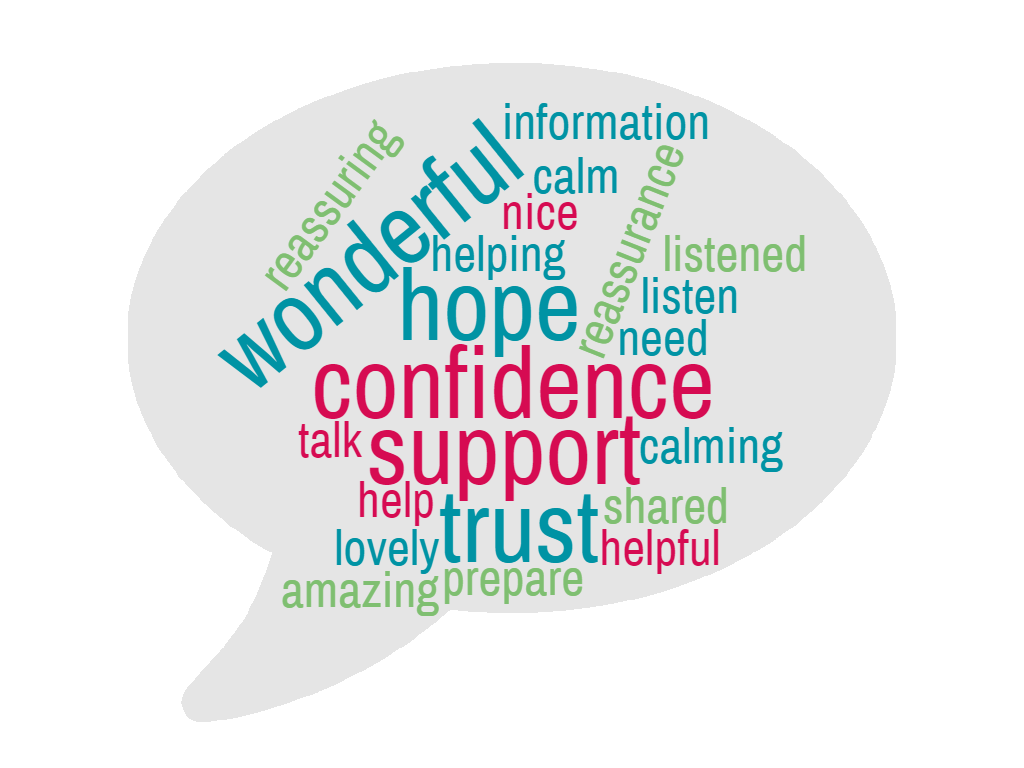
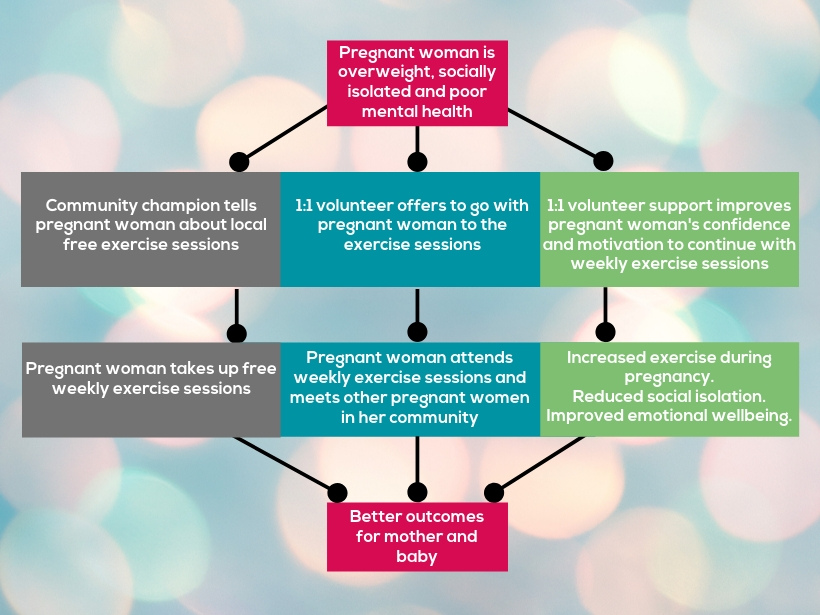
• Changing the way parents feel about themselves - improved maternal mental health and confidence (particularly through one-to-one peer support)
• Changing local ‘culture’: the ‘ripple effect’
• Changing parents’ ability to engage with services
• Changing professionals’ understanding of the communities with which they are working.
